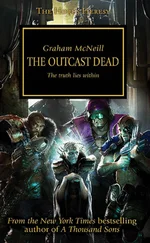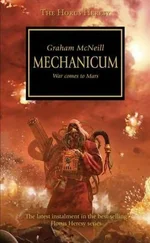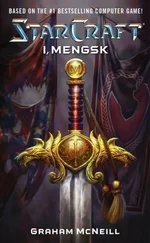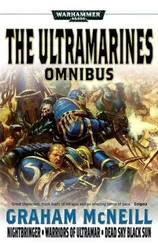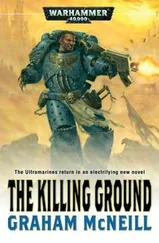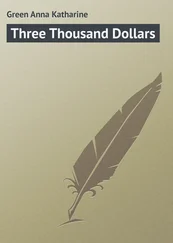Graham McNeill - A Thousand Sons
Здесь есть возможность читать онлайн «Graham McNeill - A Thousand Sons» весь текст электронной книги совершенно бесплатно (целиком полную версию без сокращений). В некоторых случаях можно слушать аудио, скачать через торрент в формате fb2 и присутствует краткое содержание. Жанр: Боевая Фантастика. Описание произведения, (предисловие) а так же отзывы посетителей доступны на портале библиотеки ЛибКат.
- Название:A Thousand Sons
- Автор:
- Жанр:
- Год:неизвестен
- ISBN:нет данных
- Рейтинг книги:3 / 5. Голосов: 1
-
Избранное:Добавить в избранное
- Отзывы:
-
Ваша оценка:
- 60
- 1
- 2
- 3
- 4
- 5
A Thousand Sons: краткое содержание, описание и аннотация
Предлагаем к чтению аннотацию, описание, краткое содержание или предисловие (зависит от того, что написал сам автор книги «A Thousand Sons»). Если вы не нашли необходимую информацию о книге — напишите в комментариях, мы постараемся отыскать её.
A Thousand Sons — читать онлайн бесплатно полную книгу (весь текст) целиком
Ниже представлен текст книги, разбитый по страницам. Система сохранения места последней прочитанной страницы, позволяет с удобством читать онлайн бесплатно книгу «A Thousand Sons», без необходимости каждый раз заново искать на чём Вы остановились. Поставьте закладку, и сможете в любой момент перейти на страницу, на которой закончили чтение.
Интервал:
Закладка:
Maat crushed the mass of crystals, letting it spill from his hand like dust.
“Surely you can muster something better than that?”
“Enough,” said Ahriman. “Hold your powers in check, both of you. They are not for vulgar
displays, especially when there are mortals nearby.”
“Then why keep them around?” asked Maat. “Simply send her on her way with the others.”
“That’s what I keep telling him,” said Phosis T’kar. “If she’s so damn keen to learn of the
Crusade, send her to a Legion that cares about being immortalised, the Ultramarines or Word
Bearers; she doesn’t belong with us.”
It was a familiar sentiment, and Ahriman had heard it a hundred times from all his fellow
captains. T’kar was not the most vocal; that honour belonged to Khalophis of the 6th Fellowship.
Whichever viewpoint T’kar took, Khalophis would emulate more vociferously.
“Should we not be remembered?” countered Ahriman. “The writings of Kallista Eris are among
the most insightful I have read from the Remembrancer Order. Why should we be left out of the
annals of the Great Crusade?”
“You know why,” said Phosis T’kar angrily. “Half the Imperium wished us dead not so long
ago. They fear us.”
“They fear what they do not understand,” said Ahriman. “The primarch tells us their fear comes
from ignorance. Knowledge will be our illumination to banish that fear.”
Phosis T’kar grunted and carved spirals in the salt with his thoughts.
“The more they know, the more they’ll fear us. You mark my words,” he said.
Ahriman ignored Phosis T’kar and stepped out from the shelter of the canopy. The sensations of
travelling in his subtle body were all but gone, and the mundane nature of the material world
returned to him: the searing heat that had turned his skin the colour of mahogany within an hour of
the Stormbird touching down, the oily sweat coating his iron hard flesh and the crisp scent of the air,
a mixture of burnt salt and rich spices.
And the swirling aetheric winds that swept the surface of this world.
Ahriman felt power coursing through his body; glittering comet trails of psychic potential aching
to be moulded into something tangible. Over a century of training kept that power fluid, washing
through his flesh like a gentle tide, preventing dangerous levels of aetheric energy from building. It
would be too easy to give in and allow it free rein, but Ahriman knew only too well the danger that
represented. He reached up and touched the silver oakleaf worked into his right shoulder-guard, and
calmed his aetheric field with a deep breath and a whispered recitation of the Enumerations.
Ahriman looked up at the towering mountain, wondering at the vast power of its makers and
what the primarch was doing inside it. Until the power to far-see was taken away, he had not
realised how blind he was.
10
= Page 11 =
“Where he?” hissed Phosis T’kar, echoing his thoughts. is
It had been four hours since Magnus the Red had followed Yatiri and his tribe into the
Mountain, and the tension had been gnawing at their nerves ever since.
“You’re worried about him, aren’t you?” asked Hathor Maat.
“Since when could you master the powers of the Athanaean?” asked Ahriman.
“I don’t need to. I can see you’re both worried,” countered Maat. “It’s obvious.”
“Aren’t you?” asked Phosis T’kar.
“Magnus can look out for himself,” said Hathor Maat. “He told us to wait for him.”
The Primarch of the Thousand Sons had indeed told them to await his return, but Ahriman had a
sick feeling that something was terribly wrong.
“Did you see something?” asked Phosis T’kar, noting Ahriman’s expression. “When you
travelled the Great Ocean, you saw something, didn’t you? Tell me.”
“I saw nothing,” said Ahriman bitterly. He turned and marched back into his pavilion, retrieving
his weapons from a long footlocker of acacia and jade. He bolstered a pistol that was as fine an
example of the armourer’s art as any crafted by the artificers of Vulkan’s Salamanders, its flanks
plated with golden backswept hawk wings and its grip textured with stippled hide.
As well as his pistol, he also bore a long heqa staff of ivory with a hooked blade at its end, its
length gold-plated and reinforced with blue copper bands.
“What are you doing?” asked Hathor Maat when he emerged, accoutred for war.
“I’m taking the Sekhmet into that mountain,” said Ahriman. “Are you coming?”
Lemuel Gaumon reclined against one of the deadstones in the foothills of the enormous mountain,
trying to keep within its shadow and wishing his frame was rather less fulsome. Growing up in the
mid-continental drift-hives of the Nordafrik enclaves, he was used to heat, but this world was
something else entirely.
He wore a long banyan of lightweight linen, colourfully embroidered with interlocking motifs of
lightning bolts, bulls, spirals and numerous other less easily identifiable symbols. It had been woven
by a blind tailor in the Sangha commercia-subsid to his design, the imagery taken from the scrolls
collected in the secret library of his villa in Mobayi. Dark-skinned and shaven-headed, his deep-set
eyes carefully watched the encampment of the Thousand Sons, while he occasionally made notes in
a pad balanced on his thigh.
Perhaps a hundred scarlet pavilions dotted the salt plains, their sides tied up, each home to a
band of Thousand Sons warriors. He’d noted which Fellowships were represented: Ahriman’s
Scarab Occult, Ankhu Anen’s 4th, Khalophis’ 6th, Hathor Maat’s 3rd and Phosis T’kar’s 2nd.
A sizeable war-host of Astartes warriors was encamped before the mountain, the atmosphere
strangely tense, though Lemuel could see no cause for it. It was clear they weren’t expecting
trouble, but it was equally clear something was troubling them.
Lemuel closed his eyes and let his consciousness drift on the invisible currents of power that
rippled in the air like a heat haze. Though his eyes were shut, he could feel the energy of this world
like a vivid canvas of colour, brighter than the greatest works of Serena d’Angelus or Kelan Roget.
Beyond the deadstones, the mountain was a black wall of nothingness, a cliff of utter darkness as
solid and as impenetrable as adamantium.
But further out into the salt flats, the world was alive with colour.
The Thousand Sons encampment was a blazing inferno of shifting colours and light, like an
atomic explosion frozen at the instant of detonation. Even amid that blazing illumination, some
lights shone brighter than others, and three such minds were gathered beneath where Lemuel knew
Captain Ahriman’s pavilion was pitched. Something preyed upon these minds, and he dearly wished
he was strong enough to venture closer. A bright mind, a supernova amongst guttering candles,
normally burned at the heart of the encampment, but not today.
11
= Page 12 =
Perhaps that was the source of the Thousand Sons’ tension.
Their great leader was in absentia.
Frustrated, Lemuel’s mind drifted away from the Thousand Sons, and he let it approach the
sunken dwellings of the Aghoru. Cut into the dry earth, they were as dark and lifeless as the
Thousand Sons were bright and vital. The Aghoru people were as barren as the salt plain, without
the slightest spark of a presence within them.
He opened his eyes, exhaling and reciting the Mantra of the Sangoma to calm his racing
Читать дальшеИнтервал:
Закладка:
Похожие книги на «A Thousand Sons»
Представляем Вашему вниманию похожие книги на «A Thousand Sons» списком для выбора. Мы отобрали схожую по названию и смыслу литературу в надежде предоставить читателям больше вариантов отыскать новые, интересные, ещё непрочитанные произведения.
Обсуждение, отзывы о книге «A Thousand Sons» и просто собственные мнения читателей. Оставьте ваши комментарии, напишите, что Вы думаете о произведении, его смысле или главных героях. Укажите что конкретно понравилось, а что нет, и почему Вы так считаете.



